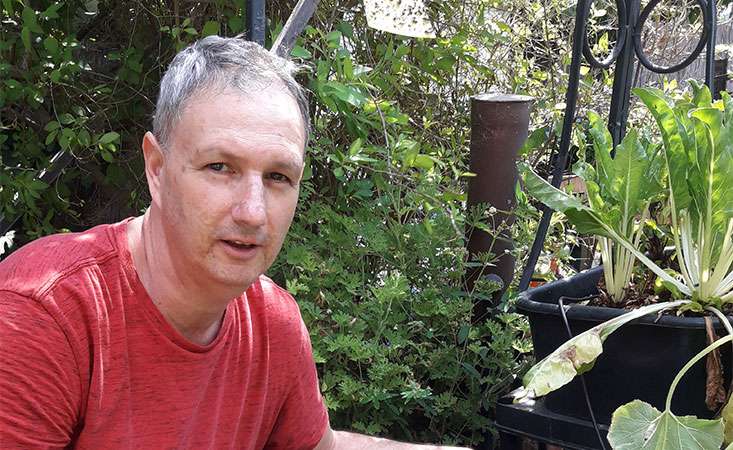
In 2015 at the age of 47, I was diagnosed with stage IV carcinoma, with a tumor in the head of the pancreas and metastases in the liver.
At first, I was designated able to have a Whipple surgery, and the doctor told me that this was my only chance to survive. However, during the surgery, they discovered metastases on the liver, and the procedure was stopped. When I woke up in the recovery room, my wife explained to me why they could not operate. Her second sentence was, ”Don’t you dare give up.”
I had three boys at home and a beloved wife; giving up was not an option. We promised ourselves that we would turn every stone and check every trail, hoping to find the best way to fight the cancer. We told ourselves that if we did not succeed, at least we would know we tried our best.
We had two weeks until the first oncology meeting at the same hospital, so we went home and devoted our time to research.
My wife, Ilanit, who has accompanied me throughout the entire process from day one until now, did not miss any procedure, treatment or doctor’s appointment. Moreover, none of this would have happened without her support. With two of her friends, they began to search the Net for the best experts in pancreatic cancer, those who think outside the box and combine research and new treatments. We read about experimental treatments and realized that to succeed we had to look for a new path, because the standard treatments did not provide a lot of hope for us.
When we came to the first meeting with the oncologist, she was very nice but had nothing to offer us except for standard chemotherapy. When we came out of that meeting, we knew that we were going to look for another hospital.
From all the checking we did, the name of a doctor came up as an expert in pancreatic cancer, and most important, the head of clinical trials. My wife called her secretary, and we held a meeting.
The best thing I remember from that meeting is the moment I opened the door and saw the doctor looking at me with a big smile. It may sound trivial, but for me it made all the difference. The fact that the doctor looks at you with an optimistic smile, even though we all understood the gravity of the situation, gave me the strength to continue fighting.
She sent me to do some genetic tests. Meanwhile, I started a series of eight chemotherapy treatments. The chemo did not allow me to maintain normal, routine life. Weakness, nausea and lack of appetite were only part of the daily challenges. Moreover, it left me with numbness in my feet and hands.
During the chemo treatment, the tumor showed signs of shrinkage. After few weeks, we got the answer that I was a carrier of a BRCA 2 mutation, so fortunately I could participate in one of the clinical trials based on that mutation. We were offered two possible trials and decided on the POLO trial.
A month after my last chemotherapy, I started to take the biological treatment olaparib, and slowly we saw in every CT scan not only that the disease was not progressing but that it was actually shrinking. Today, five years and six months since diagnosis, I have no evidence of disease. Unlike chemo, the biological treatment allows me to maintain a normal life routine. There are some side effects, but they are minor.
No one chooses to get cancer. When I got sick, I chose to take it to the best place I could. I decided to not go back to work and to do only things that make me happy. I have changed my diet drastically; I stopped consuming sugar, dairy products, meat and poultry. My diet is mostly based on legumes, vegetables and fish. I started sculpting in ceramic and metal, I play the piano daily, grow my vegetable garden, do yoga, get acupuncture, get shiatsu and go hiking.
At the beginning of my journey, I came across a sentence in one of the many books I have read about cancer, saying, “Many people who receive the news that they have cancer feel that they are in a dark room, but it is important to remember that even if you can’t turn off the darkness, you can always turn on the light.”
I always kept the light turned on, and I still do. The light of optimism, thinking of new studies and trials constantly coming, new treatments – hopefully, I thought, one of them will be suitable for me. Gladly, my belief became true. My journey goes on, I continue with my medication and diet, living a normal and happy life.
Editor’s note: Every pancreatic cancer patient is different. Patients who receive treatment based on their biology can live longer. PanCAN strongly recommends all pancreatic cancer patients get genetic testing for inherited mutations as soon as possible after diagnosis and biomarker testing of their tumor tissue to help determine the best treatment options.
Any treatments, including clinical trials, mentioned in this story may not be appropriate or available for all patients. Doctors take many things into account when prescribing treatments including the stage and type of cancer and the overall health of the patient.















